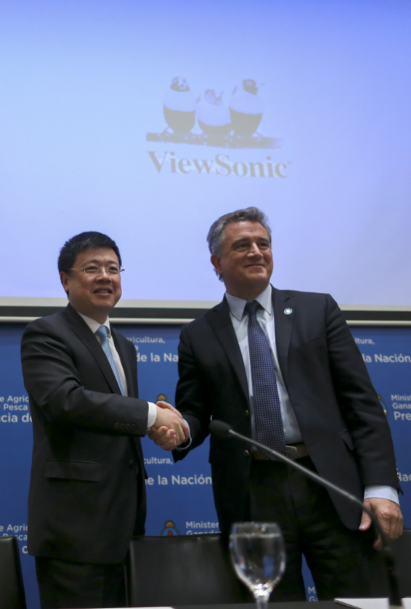Argentina's economy, specifically its soy crushers and farmers, are expecting an economic boost in the early part of 2020 after the South America grains giant was finally welcomed to export soymeal to the world's biggest consumer of this livestock feed, China.
According to the Rosario exchange, which makes this China-Argentina deal historic is Beijing only imports a small amount of processed soy product.
China prefers to domestically crush the beans instead because it has its own crushing industry.
This is why, even with an estimated 67.3 million tons of soymeal getting consumed by China's giant hog herd every year and with China being Argentina's top buyer of its raw soybeans, the mainland never opened up for Argentina.
Industry insiders said the ongoing US-China trade issues helped make Argentine soy meal exports a good option as China diversifies supply options.
From the forthcoming 2019/20 harvest season, Argentina could export 31 million tons of soymeal.
However, it is not clear how much China will bring in because of the swine flu currently hitting its hog industry.
This China-Argentina soymeal trade deal will give some stability to the country's farm sector already facing political and economic uncertainty as to its business-minded leader, President Mauricio Macri, is presumed to lose in the coming October election.
Making matters even worse is front-runner opposition candidate Alberto Fernandez is running with Cristina Fernandez de Kirchner.
She was a former president who was in a feud with Argentina's farm sector over taxes and export caps during her two terms.
Argentine farmers, because of the political and economic climate in their country, said they are going to boost soy planting instead of the more expensive corn.
China and Argentina still have bureaucratic hoops to go through before the importation of soymeal even happens says Gustavo Idigoras, head of crop export and crushing chamber Ciara-Cec.
Some specifics of these hoops will be China approving of Argentina's crushing plants. This is set to happen next month.
Likewise, the inclusion of meal in China's customs register could take five more months.
Still, Luis Zubizarreta, president of Argentina's ACSOJA soy industry organization that represents farmers, exporters and seed firms, says this timely news is excellent adding "Argentina needs to add more value to its exports to China and the world."
China's move is part of it expanding its footprint in Latin America.
It had already developed infrastructure projects like hydroelectric plants and railways across Argentina.





